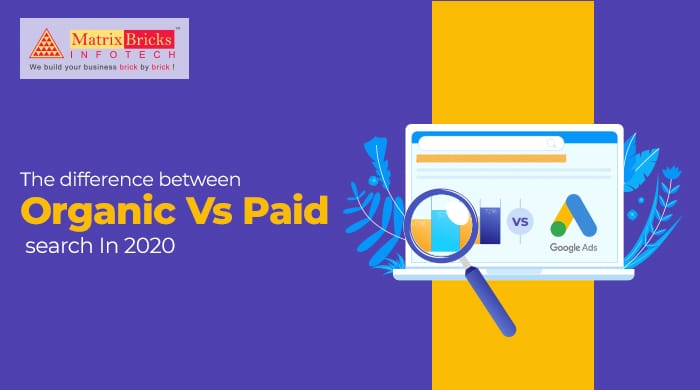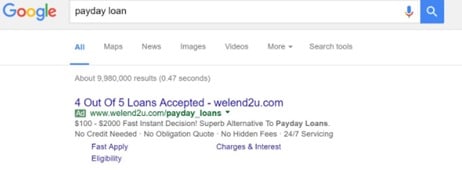
Organic Search (SEO)
Organic results are the connections that show up under the promotions in Google when you type in your inquiry. They will seem dependent on the nature of substance on the page and Google decides this in a few different ways. They will normally put together it with respect to on the off chance that you are utilizing appropriate label titles on your pages, Meta description, URL and catchphrases utilized, and so on.
Individuals finding these outcomes/interfaces through just Googling will be alluded to as natural traffic.
Organic traffic is the most significant traffic as it didn’t require a gigantic overhead to get it, yet more so through a steady stream of client-centered substance pertinent to your client’s pursuit terms.

An example of what an organic search result looks like. It is the first result on the page after typing in your query.
In essence, the higher quality content and more effort you put into adapting it for Google’s algorithms, the higher it will be ranked on Google’s search results.
In order to get stronger SEO results, you should consider:
1. Backlinks
Backlinks are approaching connects to a website page. At the point when a website page connects to some other page, it’s known as a backlink. Before, backlinks were the significant measurement for the positioning of a website page. A page with a lot of backlinks would in a general position higher on all significant web indexes, including Google. This is still consistent with an enormous degree.
2. Quality Content
A large portion of your time and exertion ought to be put resources into making awesome substance for your site. We suggest setting up a blog for your site on the off chance that you haven’t as of now. Over 56% of your natural traffic will be going towards your website’s blog. Exploit this measurement.
3. Keyword planning
Google’s Keyword Planner tools will show you what your competition is ranking for too. Take a look if they’re targeting any specific keywords or phrases you aren’t.
It might be advantageous to concentrate your endeavors more on long-tail watchwords instead of short catchphrases like ‘web-based showcasing’ which will have high pursuit volume with a high CPC (cost-per-click) – for a business with low backlink check and area authority, it might be difficult to separate yourself from those effectively settled.
4. Website Optimization
Does your website load fast for your target audience? Do the website work on every device and every browser? Ensure your site works on mobile. If you aren’t sure whether your site is mobile-friendly, Google has a great tool that will assess whether it loads well for mobile devices and if there are any issues, it will give you some insight as to what you can improve. Over half the population of the world now has access to a mobile device and they need to be able to navigate your site easily.
Paid Search (SEM)
When you type something into Google, you are presented with a list of results; or SERP (the search engine results page) which shows organic results and paid results.
Paid search results have a little green box with the word “Ad” before the listing; this is where a company, like yours, has paid to have their page show up at the top of the list. This can be done through the Google Ads search campaign, which charges you a small amount of money for every person who clicks on that link. Paid search works to drive traffic to your website through relevant ads

An example of a paid search result as shown by the ‘ad’ next to it.
SEM/PPC is a good path to go down if you’d like to have your website listed automatically rather than having to work for months on end establishing backlinks, but you should still have great content regardless. Content really is key regardless if you choose organic vs paid results, it needs to be the forefront of your operation.
If you have the money to invest, this is the quickest way of getting to the top. You can generally improve your internet searcher rankings, yet there is no assurance you will rank number one or even on the primary page. Paid pursuit guarantees you’re recorded on the main page in any case.
Conclusion
Organic SEO will create great brand awareness, solidify you as a company that is reputable and trustworthy and you’ll need to still have great content in order to get more conversions and results.
Paid Search gives you fast results which can lead to quicker conversions. It all comes down to what you’re willing to invest, is it more time or is it more money?
